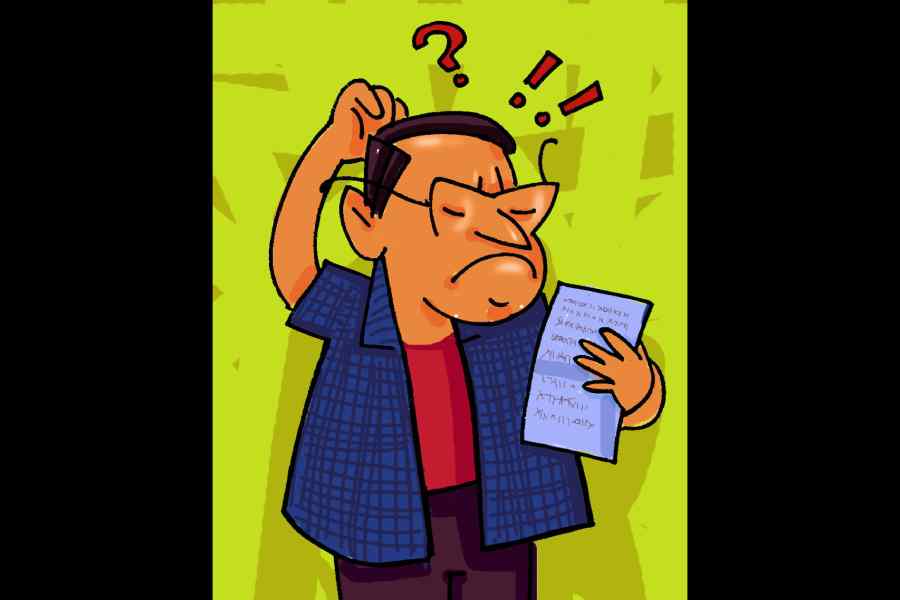“Whoever, upon any way or in any place to which the public has a right of access, or upon any way or in any place to which members of the public have access as invitees or licensees, operates a motor vehicle with a percentage, by weight, of alcohol in their blood of eight one-hundredths or greater, or while under the influence of intoxicating liquor, or of marijuana, narcotic drugs, depressants, or stimulant substances, all as defined in section one of chapter ninetyfour C, or while under the influence from smelling or inhaling the fumes of any substance having the property of releasing toxic vapors as defined in section 18 of chapter 270 shall be punished by a fine of not less than five hundred nor more than five thousand dollars or by imprisonment for not more than two and one-half years, or both such fine and imprisonment.”
Gobsmacked by the gobbledygook? It refers to drunk driving, silly, as defined in a US law.
It has taken a law graduate and two psycholinguistics researchers four years and two sets of writing experiments with volunteers to decipher why legal documents are crafted in complex, convoluted, difficult-to-grasp language.
Their research has suggested that the law is a rare exception to the general tendency in human language to communicate efficiently and that convoluted sentences in legalese spring from attempts to signal the authoritative nature of law.
Their study, published this week in the Proceedings of the National Academy of Sciences, has corroborated the so-called “magic spell hypothesis” that had proposed that lawyers write in a complex manner to confer on legal documents a ritualistic and spell-like element.
“Utterances in magic spells convey not just information but are intended to be world-altering words,” said Eric Martinez, a lawyer and research scholar at the Massachusetts Institute of Technology and the study’s first author.
Martinez added: “Similarly, the complex language in legal documents is intended to exude power and authority.”
Many legal documents, for instance, are typically marked by a sentence structure called “centre-embedding” in which long definitions are inserted in the middle of sentences, a structure which linguists classify as difficult to understand.
“Legalese has developed this tendency to put structures inside other structures, in a way which is not typical of human languages,” said Edward Gibson, professor of brain and cognitive sciences at MIT who supervised the research.
Martinez, Gibson and collaborator Francis Mollica at the University of Melbourne, Australia, used computational natural language processing tools to analyse 59 million words — some 3.5 million words from legal contracts, the others from six genres of English: academic texts, fiction, newspaper articles, magazine articles, spoken transcripts and movie or TV scripts.
They found that the percentage of sentences with centre-embedded syntax in legal documents was 38 per cent, significantly higher than the 12 per cent in movies or TV scripts and less than 20 per cent in the spoken transcripts or newspaper articles.
Gibson’s research group has been probing legalese since 2020 when Martinez came to MIT after earning a law degree from the Harvard Law School. In an independent study published last year, the researchers showed that even lawyers find legal documents hard to understand and prefer plain English versions.
“Laypersons don’t like it, even lawyers find it unwieldy and complicated — our new study was designed to figure out why lawyers write documents this way,” Gibson said.
The researchers designed experiments to test the magic spell hypothesis and the copy-and-edit hypothesis that assumes that centre-embedding syntax emerges because the writers prefer to embed information within sentences of earlier drafts.
In their experiments, they asked 200 non-lawyers to write laws prohibiting crimes such as drunk driving, burglary, or arson. In a second task, the volunteers were asked to write stories about those crimes. To test the copy-and-edit hypothesis, volunteers were asked to add additional information after they wrote the laws or the story. In another set of experiments, they asked 80 volunteers to write laws as well as descriptions of the laws.
They found that volunteers wrote laws with centre-embedded clauses, regardless of whether they wrote the law at once or added to it later and always wrote stories in plainer English. In the other experiment, the 80 volunteers centre-embedded the laws but explained the laws in simple English.
The researchers say their findings suggest that legal documents can be made simpler. “Because this complexity is not introducing additional information, laws that have this complexity can in principle be simplified without a change in meaning,” Martinez said.











